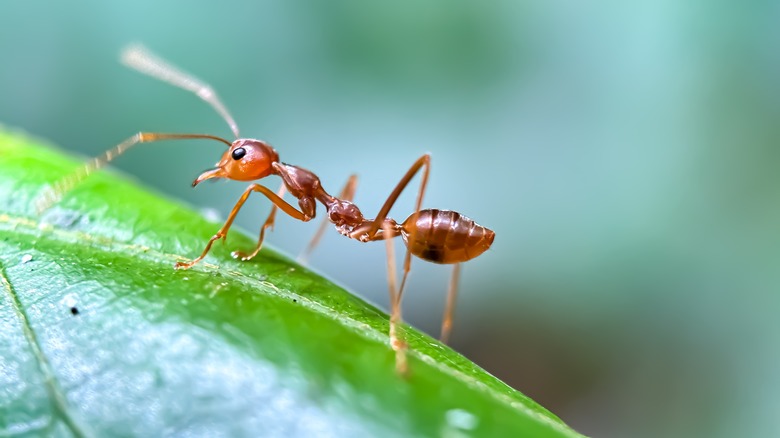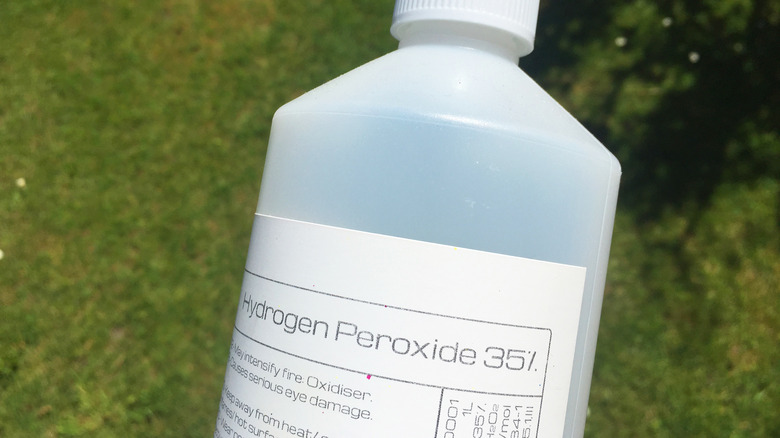The Hydrogen Peroxide Hack People Use To Kill Ants Instantly (& Does It Really Work?)
Having a few ants around your yard and garden can be beneficial — they can help aerate the soil, prevent weeds, and eliminate some small pests. However, they can become a problem quickly, especially if they start making their way inside your home, exploring your kitchen and eating your food. While you may have already tried some natural ways to get rid of ants without poisons, sometimes you need to get more extreme and kill the ants that are in your home and yard. You can use pesticides and chemical ant killers as a last resort, but a more natural and eco-friendly alternative that some suggest using is hydrogen peroxide.
Some pest control companies and anecdotal reports online suggest that hydrogen peroxide works well as a natural ant killer. Despite a lack of scientific research, hydrogen peroxide is said to kill ants on contact. Fortunately, it can be applied to them easily. You can try it yourself by creating a spray with a diluted solution of 35% food-grade hydrogen peroxide. Hydrogen peroxide that doesn't contain any additives may work best. You'll want to create the spray using a ratio of one part hydrogen peroxide to 11 parts water. You can then spray ants directly inside or outside your home or spray their trails to disrupt their activity. Once the ants are dead, wipe them away with a towel and dispose of them.
Mistakes to avoid when using hydrogen peroxide to kill ants
There are several things to keep in mind when using this hack. You'll want to be sure to keep plants safe when using hydrogen peroxide on or around plants. Hydrogen peroxide can actually be useful for plants and can work as a disinfectant, helping to reduce bacteria and fungus. It may be a good last resort for combatting root rot, for example. However, it should always be used diluted since the spray could damage grass and plants if the concentration is too high.
Also be sure to keep hydrogen peroxide out of the reach of children and pets. It can especially be harmful to cats if ingested. This household product can cause burns internally if it's swallowed, particularly in high concentrations. You should also avoid contact with the skin and eyes since it can cause irritation, despite it commonly being used to disinfect wounds in the past.
Another thing to remember when using this hack is that it shouldn't be your only tool in the fight against ants. You'll also want to eliminate the source of ant problems and do everything you can to prevent ant hills from showing up in your yard in the first place. When killing ants with hydrogen peroxide, they may quickly get replaced by other ants if you don't focus on the root of the problem. You may need tougher solutions if your ant problem is severe or if this spray fails to make a significant difference around your home.

